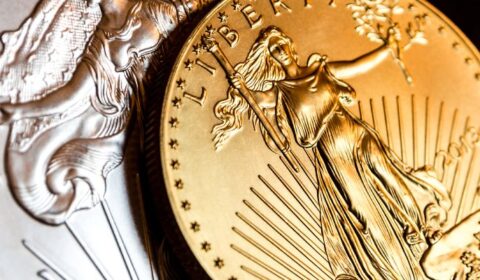Why Central banks are Adding Gold

Gold’s attractiveness has remained steady throughout the centuries. This year central banks are expected to be net buyers of gold. Gold has long been a crucial part of governments’ financial reserves. About one-fifth of all the gold ever mined is currently stored in central banks, which amounts to 35,000 metric tonnes.
Central Banks are Amassing Gold Reserves
Third-quarter gold buyers were led by Turkey, Uzbekistan, and India.
Indian shoppers traditionally stock up on gold jewelry just in time for the holiday. However, the Reserve Bank of India (RBI) increased its gold holdings by 17 tonnes this year, bringing the total to 785 tonnes, as reported by the World Gold Council (WGC).
A possible motivation for the RBI’s gold purchase frenzy is an effort to broaden the portfolio of investments backing the country’s foreign exchange reserves.
As a result of the Federal Reserve’s rapid rate hikes in 2022, the value of the Indian rupee plummeted versus the US dollar by about 10%. However, the RBI was able to mitigate some of the damage by spending its foreign exchange reserves.
Why Central Banks Add Gold
1. To Diversify Reserve Holdings
Gold is widely used by central banks because of its usefulness in diversifying reserve holdings. National currencies are the responsibility of the banks that issue them. Their value can rise or fall depending on investor confidence or fear of the economy. Many gold and silver investment companies have been soaring high as a result of this development.
The devaluation of the currency is unavoidable if we are to avoid economic collapse brought on by the expansion of the money supply. In contrast, the total amount of gold is fixed. For this reason, it serves as a reliable protection against price increases.
2. Immunity to Credit
Due to its role as a store of value and its immunity to credit and counter party problems, gold is a vital reserve asset alongside government bonds around the world.
One of gold’s selling points is its negative correlation with the US dollar, another important reserve asset. Gold’s tendency to appreciate in value when the dollar falls allows central banks to hedge their currency reserves against currency depreciation.
The traditional economic superpowers are no longer adding to their already significant gold holdings, shifting the profile of the most active central banks. With over 78% of its entire foreign reserves, the United States has more gold than any other country. Gold IRA companies and custodians are at an all-time high.
Now, emerging markets like China, Turkey, Russia, and India are the primary buyers of gold. However, despite the four countries’ heavy investment in gold over the past decade or two, they still lag behind their Western counterparts.
Members of the European Union have been adding to their stockpiles regularly. Hungary’s central bank released a statement this year after tripling its gold reserves to 94.5 tonnes. This provided a glimpse into gold’s contemporary relevance and enduring allure.
Final Words
While the historical context of central banks’ purchases of gold may have shifted, the motives for investing in the commodity have remained mostly unchanged. If you want to take advantage of the situation, you must contact Orion Metal Exchange, gold and silver investment company, that deals with genuine metals and coins.






